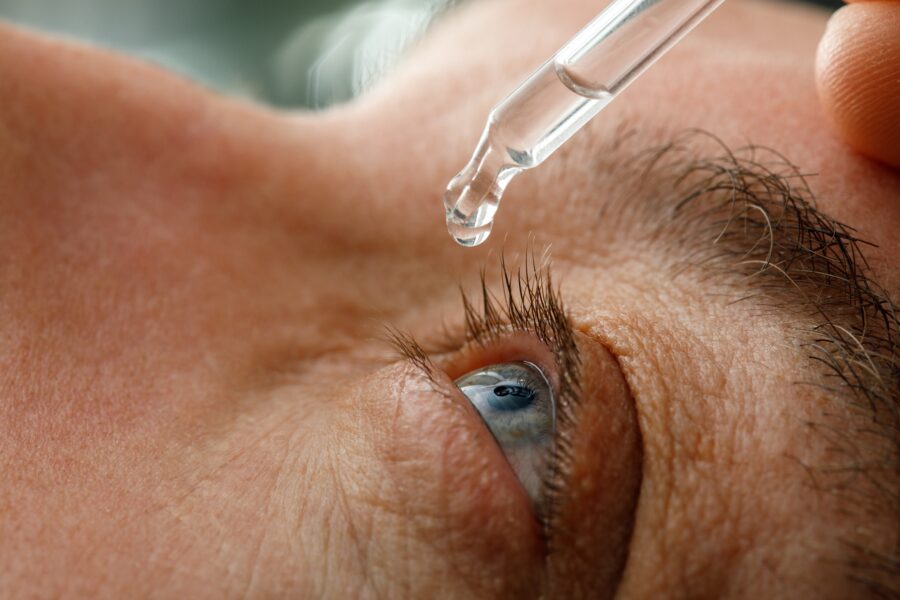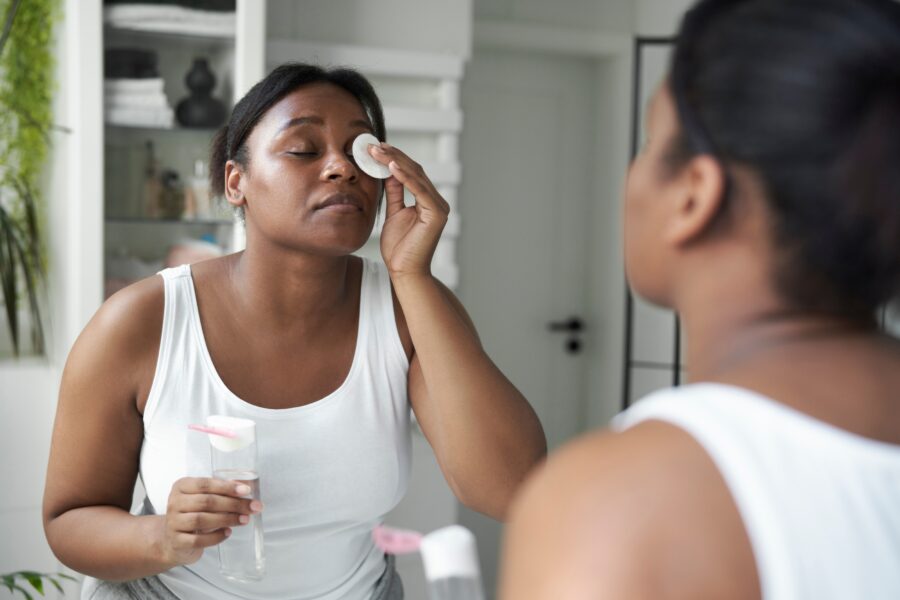Blog post
Conjunctivitis (Pink Eye): Symptoms, Causes, Treatments and Home Remedies

Matthew Burford BSc(Hons) Optometry MCOptom - Domiciliary Optician and Professional Services Manager at OutsideClinic
5 minute read time
What is conjunctivitis?
Conjunctivitis, commonly known as pink eye, is an inflammation of the thin, transparent layer that covers the white part of the eye and the inside of the eyelids.
When the blood vessels in this layer become inflamed, they're more visible and give the eye a pink or reddish colour, which is why it's often referred to as pink eye.
What are the symptoms of conjunctivitis? What does conjunctivitis feel like?
- Redness in one or both eyes
- Itchiness
- A gritty feeling
- Discharge that may form a crust during the night and prevent your eye or eyes from opening in the morning
- Excessive tearing
- A feeling of having something in your eye
- Irritation
- Discomfort
Examples of conjunctivitis:
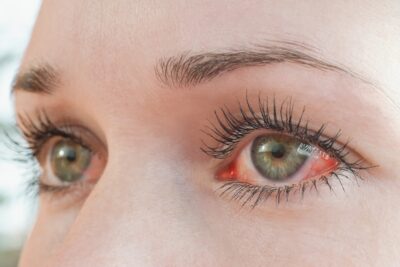
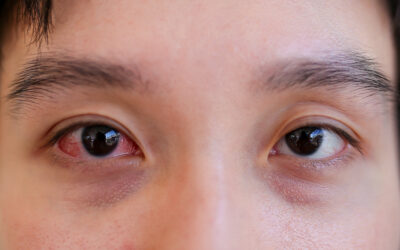
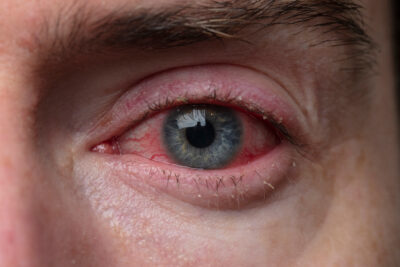

What causes conjunctivitis?
Conjunctivitis can be caused by infections (bacterial or viral), allergies or environmental irritants such as smoke or dust.
Allergic conjunctivitis is triggered by allergens like pollen or pet dander and may be accompanied by other allergy symptoms like sneezing and watery eyes.
Is conjunctivitis contagious?
Viral and bacterial conjunctivitis are contagious and easily spreading through direct or indirect contact of an infected person.
Allergic conjunctivitis is not contagious.
Should I go to work with conjunctivitis?
If you believe you have viral or bacterial conjunctivitis, and if your job requires you to come into close contact with others, it might be wise to consider staying at home to avoid spreading the infection, especially if you are required to be around vulnerable people.
However, if you're able to maintain distance and avoid close contact with people, going to work could be feasible as long as you regularly wash your hands and clean any objects or surfaces you frequently touch.
This approach helps minimise the risk of spreading conjunctivitis to others while allowing you to continue your professional activities when possible.
As allergic conjunctivitis is not contagious, there is no risk of spreading it and you should be fine to continue your daily activities as normal.
Am I OK to swim with conjunctivitis?
It’s best to avoid swimming with conjunctivitis, as it can spread to others in the pool and your eyes could be aggravated by the chlorine in the pool water.
Can you catch conjunctivitis from a pet?
Yes, certain types of conjunctivitis can be transmitted from pets to humans, though it's relatively rare.
It’s important to practice good hygiene around pets, especially if they show signs of eye infections.

How long does conjunctivitis last?
Conjunctivitis typically lasts from a few days to two weeks, depending on the cause.
Viral conjunctivitis can take up to two weeks to resolve, whereas bacterial conjunctivitis usually improves within a few days with appropriate treatment.
If your conjunctivitis isn’t showing any signs of clearing up after 2 weeks, then it’s best to consult your Optician or GP.
How do you treat conjunctivitis?
Treatment depends on the cause:
- Bacterial conjunctivitis: Antibiotic eye drops or ointments. These can be bought over the counter in some cases.
- Viral conjunctivitis: Often resolves on its own; warm compresses can help relieve symptoms.
- Allergic conjunctivitis: Anti-allergy medications or drops can help reduce inflammation and discomfort. Eye cleansing wipes like Blephaclean can also help.

Are there any home remedies to treat conjunctivitis?
Yes, applying a cold or warm compress to your eyes several times a day can help relieve the symptoms. Ensure each eye has its own compress to avoid cross-contamination.
How can I sooth my eyes with conjunctivitis?
Along with compresses, avoid wearing contact lenses and eye makeup until the infection has cleared. Keep your eye area clean by gently washing with water and drying with a clean towel.
Will conjunctivitis go away on its own?
Often, mild conjunctivitis, particularly the viral type, will clear up on its own without medical treatment.
However, if symptoms worsen or persist for more than 2 weeks, it’s important to seek professional advice.
Why do I keep getting conjunctivitis? How can I prevent conjunctivitis?
Recurrent conjunctivitis may be due to not fully eliminating the infection or due to repeated exposure to allergens.
Preventing conjunctivitis involves maintaining good eye hygiene, avoiding known allergens and not touching or rubbing your eyes with unclean hands.
Can conjunctivitis cause blindness?
While conjunctivitis is usually a minor eye infection, if left untreated, severe cases, especially those caused by bacteria, can lead to more serious complications that could threaten vision.
If you experience very persistent conjunctivitis, pain in the eye, changes in vision or intense redness, consult your Optician or GP.

By Matthew Burford BSc(Hons) Optometry MCOptom - Domiciliary Optician and Professional Services Manager at OutsideClinic Post last updated 4th November 2025
Matthew graduated from Aston University in 2004 with a degree in Optometry.

